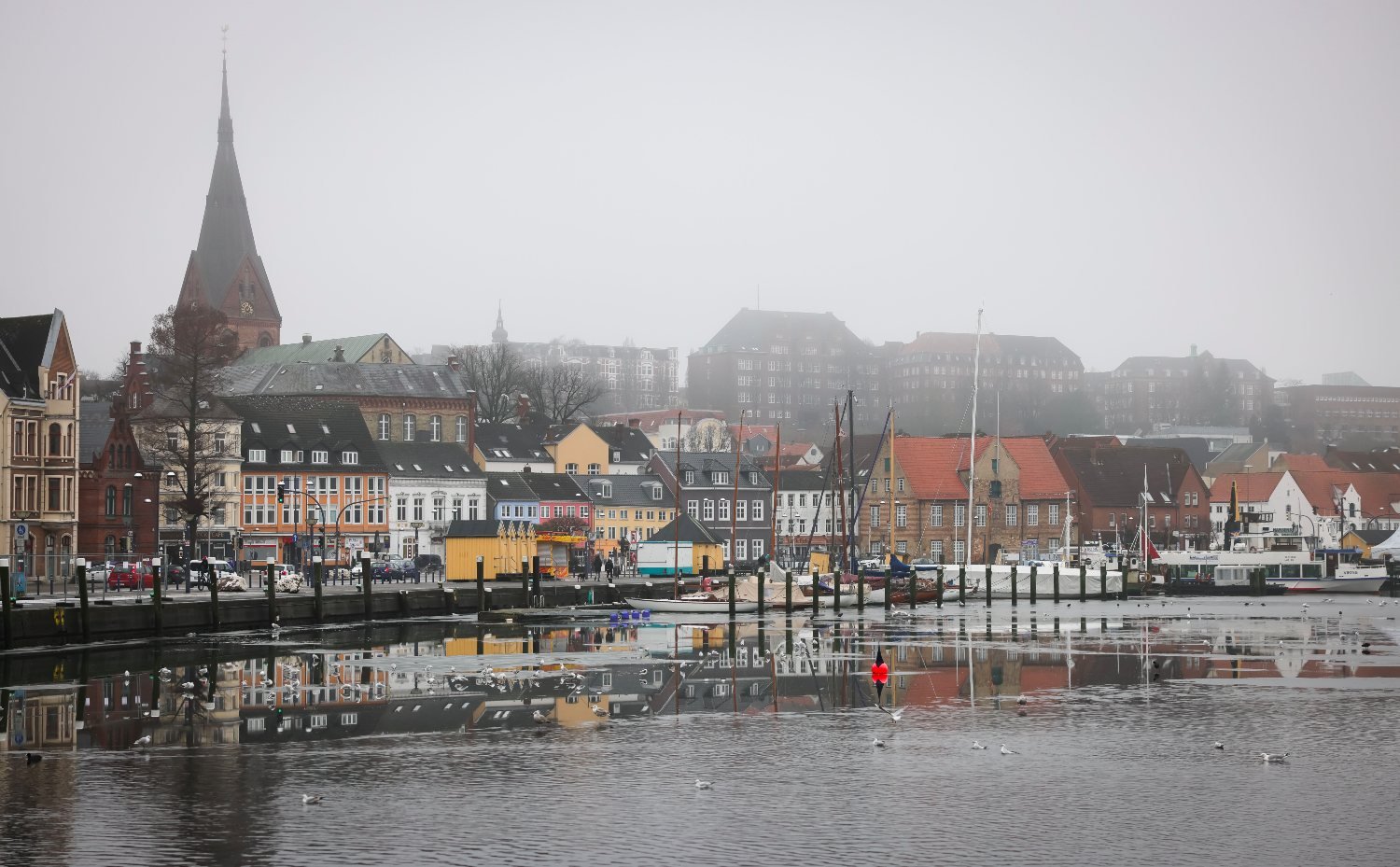Residents in the Schleswig-Holstein city, which lies close to the Danish border, will face a night time curfew, while contact restrictions will be tightened.
The area is seeing a large Covid outbreak fuelled by the more contagious variant discovered in Britain.
On Friday there were on average just over 177 coronavirus cases per 100,000 residents within a seven-day period in Flensburg – while the overall number for the state of Schleswig-Holstein was 49.1.
The 7-day incidence for Germany on Friday stood at 56.8. The number has been falling in the previous weeks, but has stagnated slightly in recent days, leading experts to worry that the spread of coronavirus variants will push up infections.
READ ALSO: How and why Germany tightened its target for lifting lockdown measures
Schleswig-Holstein's state premier Daniel Günther, of Angela Merkel's Christian Democrats, said the infection figures in Flensburg, which has a population of around 89,500, were a “cause for great concern”.
Flensburg's mayor Simone Lange, of the Social Democrats, said the “constantly high incidence rate and a share of mutations in the infections of well over 33 percent,” meant the city needed to take swift and strong action.
A study by the Robert Koch Institute (RKI) even suggests that mutations could now be responsible for more than half of the cases in Flensburg. For comparison, the British variant of the virus accounts for around 22 per cent of cases in Germany, federal Health Minister Jens Spahn announced this week.
Does Flensburg show what could be in store for Germany?
SPD health expert Karl Lauterbach said the Flensburg cases is the “first example of what we could face with further spread of UK B.1.1.7”.
Lauterbach said a strict lockdown until the incidence is below 35 again was needed.
Flensburg ist erstes Beispiel, was uns mit weiter Verbreitung von UK B117 drohen könnte. MP Günther bringt sogar Ausgangssperren ins Spiel. Verhindern kann das nur strikter Lockdown bis wir klar unter Zielinzidenz von 35 liegen. Dann bilden sich weniger Cluster, Kontrolle möglich https://t.co/22JeKrXdMA
— Karl Lauterbach (@Karl_Lauterbach) February 18, 2021
For at least a week and possibly longer, Flensburg residents will only be allowed to leave their homes from 9pm to 5am if they have a valid reason to do so. Visits to the doctor and to go to work are allowed.
Contact restrictions will also be tightened: a household in Flensburg won't be allowed to meet with anyone outside the household. Exceptions apply to visits to hospitals, couples who live apart, and children with separated parents.
At the moment across Germany, households are allowed to meet with one other person and they should have a social bubble to avoid meeting lots of different people.
IN NUMBERS: What is the coronavirus situation around Germany?
What's happening in Denmark?
There are concerns about the British variant spreading in Denmark, which lies just a few kilometres from Flensburg. Tighter border controls were brought in this week in Denmark's border regions, including with Germany.
According to preliminary figures from the Danish Statens Serum Institut (SSI), which are updated daily, the British Covid mutant was detected in 47.4 percent of the sequenced coronavirus samples from the previous week.
The share was reportedly just under two percent at the end of December.
The SSI expects the variant to account for more than 80 percent of all Covid cases in Denmark as early as the beginning of March. As a result, the reproductive number, which shows how many people an infected person goes onto infect, is likely to increase to 1.1, according to experts – even without relaxing measures.
When the R number is above 1, the number of infection goes up quickly.



 Please whitelist us to continue reading.
Please whitelist us to continue reading.
Member comments